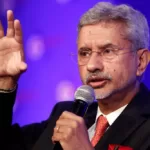In a noteworthy analysis, Goldman Sachs Group Inc. has foreseen that India’s government is likely to curtail its investment spending in the forthcoming years. This strategic shift aims to address the country’s budget deficit and potentially creates opportunities for the private sector to assume a more prominent role in this regard.
With Prime Minister Narendra Modi’s administration aiming to reduce the fiscal deficit by approximately 1.5 percentage points over the next two years, the rapid pace of capital expenditure growth witnessed in recent years may not be sustainable, as noted by Goldman’s economists Santanu Sengupta, Arjun Varma, and Andrew Tilton in a recent note.
Investment has historically played a pivotal role in propelling India’s economic growth, contributing a significant 3 percentage points to the annual real GDP growth of 7% between 2004 and 2012, according to the economists’ estimates.
While both businesses and households have been substantial contributors to India’s investment landscape, their momentum has somewhat waned over the past decade. This slowdown is attributed to factors such as reduced growth in the property market, tightened credit conditions, and declining savings. Notably, public investment in capital projects has picked up during this period, partially offsetting the decline.
The private sector now finds itself positioned to potentially increase investment activity, particularly as companies explore supply chain realignment and diversify away from manufacturing locations in China. Furthermore, Prime Minister Modi’s ‘Make in India’ initiative, aimed at bolstering local manufacturing, presents opportunities for firms to expand their presence.
Indian enterprises have taken steps to reduce debt, and financial institutions possess adequate capital to support fresh business expansion. Additionally, India’s regulatory processes are streamlined, potentially facilitating a resurgence in corporate capital expenditure, assert the economists from Goldman Sachs.
The Indian federal government had allocated a record 10 trillion rupees ($120 billion) for investment in the fiscal year ending March 2024. Furthermore, it has committed to reducing the budget deficit to 4.5% of GDP in 2025-26, down from the current 5.9% level.
The private sector’s role in the Indian economy has exhibited resilience following the pandemic, with robust private demand, a surge in credit card spending, and a doubling of banks’ retail loan portfolios since 2019.
In the coming years, a revival in private investment activity is expected to be driven by domestic demand and the alleviation of supply-side constraints, according to the economists at Goldman Sachs.







